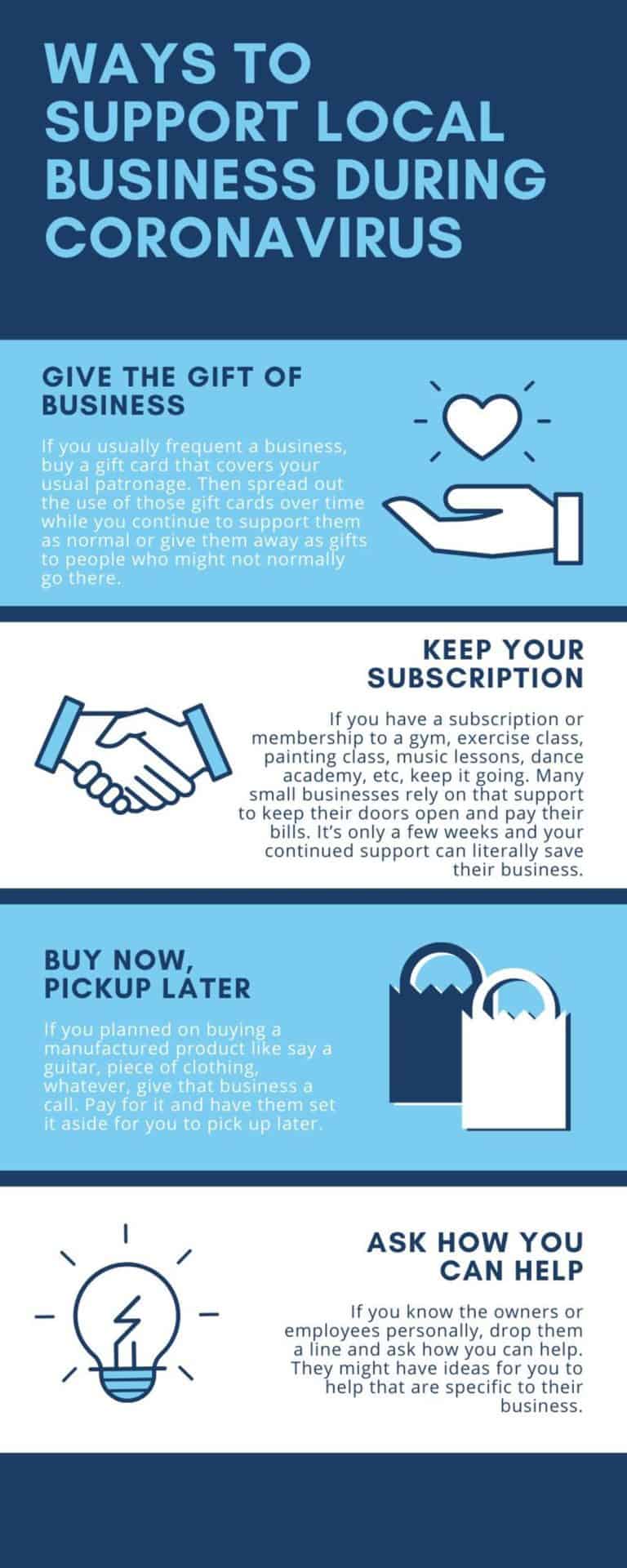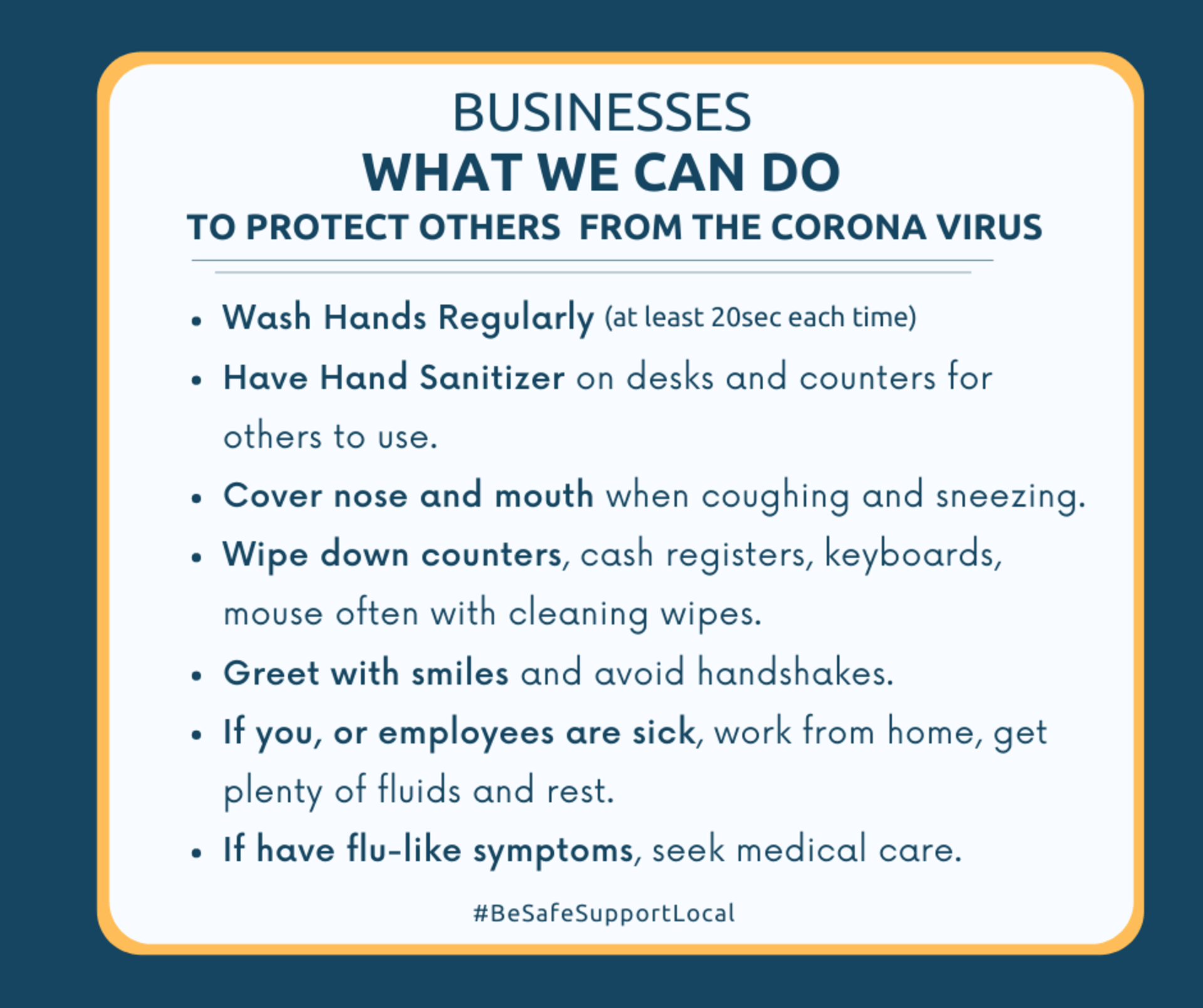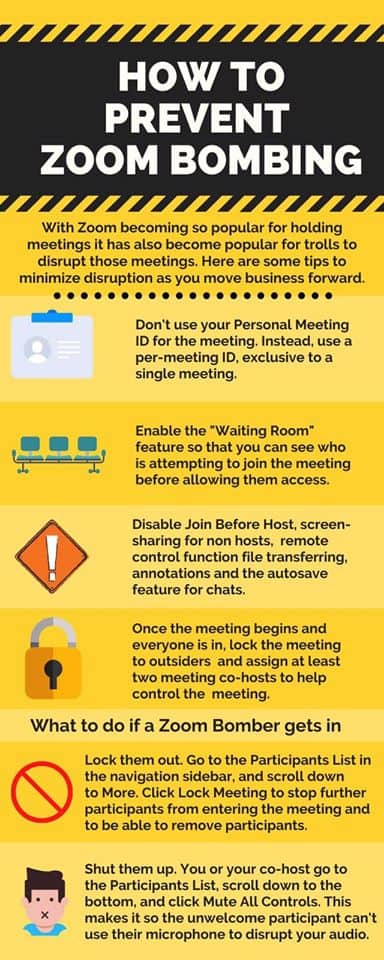Resources for COVID-19 response and prevention
As the coronavirus 2019 continues to spread the State of Illinois and the Center of Disease Control & Prevention has recommended steps to plan, prepare and respond. It is the Grundy County Chamber of Commerce & Industry’s mission to aid, protect and help our local business community. Below are the recommendations and resources we will follow and share with our members and community.
The Chamber has provided free printable signage to help promote social distancing requirements. Visit here for the printable signs.
Illinois Indoor Masking Requirement to End Monday, February 28, 2022
SPRINGFIELD - Due to the continued decrease in COVID-19 cases and hospitalizations, and increase in available ICU beds, the Illinois indoor mask requirement will end Monday, February 28, 2022, at 12:01 a.m. Since the Governor announced his plan to lift the indoor mask requirement, the number of people in the hospital with COVID-19 has been cut in half and the number of ICU beds available increased by 24%. Illinois' weekly COVID-19 case rate has also decreased by 70%,
More than 8 million people in Illinois are fully vaccinated with an average of approximately 16,000 COVID-19 vaccines administered each day, including more than 4,600 first doses daily....READ MORE
CDC Updates and Shortens Recommended Isolation and Quarantine Period for General Population
December 27th, 2021
Given what we currently know about COVID-19 and the Omicron variant, CDC is shortening the recommended time for isolation from 10 days for people with COVID-19 to 5 days, if asymptomatic, followed by 5 days of wearing a mask when around others. The change is motivated by science demonstrating that the majority of SARS-CoV-2 transmission occurs early in the course of illness, generally in the 1-2 days prior to onset of symptoms and the 2-3 days after. Therefore, people who test positive should isolate for 5 days and, if asymptomatic at that time, they may leave isolation if they can continue to mask for 5 days to minimize the risk of infecting others.
Additionally, CDC is updating the recommended quarantine period for those exposed to COVID-19. For people who are unvaccinated or are more than six months out from their second mRNA dose (or more than 2 months after the J&J vaccine) and not yet boosted, CDC now recommends quarantine for 5 days followed by strict mask use for an additional 5 days. Alternatively, if a 5-day quarantine is not feasible, it is imperative that an exposed person wear a well-fitting mask at all times when around others for 10 days after exposure. Individuals who have received their booster shot do not need to quarantine following an exposure, but should wear a mask for 10 days after the exposure. For all those exposed, best practice would also include a test for SARS-CoV-2 at day 5 after exposure. If symptoms occur, individuals should immediately quarantine until a negative test confirms symptoms are not attributable to COVID-19.
Isolation relates to behavior after a confirmed infection. Isolation for 5 days followed by wearing a well-fitting mask will minimize the risk of spreading the virus to others. Quarantine refers to the time following exposure to the virus or close contact with someone known to have COVID-19. Both updates come as the Omicron variant continues to spread throughout the U.S. and reflects the current science on when and for how long a person is maximally infectious.
Data from South Africa and the United Kingdom demonstrate that vaccine effectiveness against infection for two doses of an mRNA vaccine is approximately 35%. A COVID-19 vaccine booster dose restores vaccine effectiveness against infection to 75%. COVID-19 vaccination decreases the risk of severe disease, hospitalization, and death from COVID-19. CDC strongly encourages COVID-19 vaccination for everyone 5 and older and boosters for everyone 16 and older. Vaccination is the best way to protect yourself and reduce the impact of COVID-19 on our communities.
The following is attributable to CDC Director, Dr. Rochelle Walensky:
“The Omicron variant is spreading quickly and has the potential to impact all facets of our society. CDC’s updated recommendations for isolation and quarantine balance what we know about the spread of the virus and the protection provided by vaccination and booster doses. These updates ensure people can safely continue their daily lives. Prevention is our best option: get vaccinated, get boosted, wear a mask in public indoor settings in areas of substantial and high community transmission, and take a test before you gather.”
If You Test Positive for COVID-19 (Isolate)
Everyone, regardless of vaccination status.
- Stay home for 5 days.
- If you have no symptoms or your symptoms are resolving after 5 days, you can leave your house.
- Continue to wear a mask around others for 5 additional days.
If you have a fever, continue to stay home until your fever resolves.
If You Were Exposed to Someone with COVID-19 (Quarantine)
If you:
Have been boosted
OR
Completed the primary series of Pfizer or Moderna vaccine within the last 6 months
OR
Completed the primary series of J&J vaccine within the last 2 months
- Wear a mask around others for 10 days.
- Test on day 5, if possible.
If you develop symptoms get a test and stay home.
If you:
Completed the primary series of Pfizer or Moderna vaccine over 6 months ago and are not boosted
OR
Completed the primary series of J&J over 2 months ago and are not boosted
OR
Are unvaccinated
- Stay home for 5 days. After that continue to wear a mask around others for 5 additional days.
- If you can’t quarantine you must wear a mask for 10 days.
- Test on day 5 if possible.
If you develop symptoms get a test and stay home
Webinar Series: Navigating the New Normal?
Return to Work: How to Successfully Navigate the Transition
April 21, 2021
Presenter: Julie Proscia– Partner
Initial Thoughts…
The multitude of patchwork re-opening plans across the country has created confusion for employers on how to effec...READ MORE
Business & Organizations guidance
Provided by Illinois Department of Public Health
Date: 4/6/2021
The Illinois Department of Public Health (IDPH) provides the following interim guidance that may help prevent workplace exposures to acute respiratory illnesses, including COVID-19, in non-health care settings. The guidance also provides planning considerations in the event of widespread, community outbreaks of COVID-19.
Recommended strategies for employers to use now
Actively encourage sick employees to stay home:
- Employees who are sick and have respiratory symptoms, such as fever, cough, and shortness of breath, should remain home unless in need of medical attention. These individuals can be around others after they have stayed at home for at least 3 days with no fever and symptoms improved and it has been 10 days since symptoms first appeared.
- Ensure your sick leave policy is flexible and consistent with public health guidance and employees are aware of the policy.
- Talk with companies that provide your business with contract or temporary employees about the importance of sick employees staying home and encourage them to develop non-punitive leave policies.
- Do not require a health care provider’s note for employees who are sick with acute respiratory illness to validate their illness or to return to work, as health care provider offices and medical facilities may be busy and not able to provide timely documentation.
- Employers should maintain flexible policies that permit employees to stay home to care for a sick family member. Employers should be aware that more employees may need to stay at home to care for sick children or other sick family members than is usual.
Separate sick employees:
- IDPH recommends employees who appear to have acute respiratory illness symptoms (i.e., cough, shortness of breath) upon arrival to work or become sick during the day should be separated from other employees and be sent home immediately. Sick employees should cover their noses and mouths with a tissue when coughing or sneezing (or an elbow or shoulder if no tissue is available).
Emphasize employees should stay home when sick, practice respiratory etiquette, and frequently wash hands.
- Place posters that encourage staying home when sick, cough and sneeze etiquette, and hand hygiene at the entrance to the workplace and in other workplace areas where they are likely to be seen.
- Provide tissues and no-touch disposal receptacles for employee use.
- Instruct employees to clean their hands often with an alcohol-based hand sanitizer that contains at least 60 percent alcohol or wash their hands with soap and water for at least 20 seconds. Soap and water should be used preferentially if hands are visibly dirty.
- Provide soap and water and alcohol-based hand rubs in the workplace and ensure adequate supplies are maintained. Place hand rubs in multiple locations or in conference rooms to encourage hand hygiene.
- Visit the coughing and sneezing etiquette and clean hands webpage for more information.
Perform routine environmental cleaning
- Regularly clean frequently touched surfaces, such as workstations, countertops, and doorknobs. Use cleaning agents typically used in these areas and follow the label directions.
- Provide disposable wipes so commonly used surfaces (e.g., doorknobs, keyboards, remote controls, desks) can be wiped down by employees before each use.
Advise employees before traveling to take certain steps
- Centers for Disease Control and Prevention’s (CDC) recommends all nonessential international travel be avoided. Check CDC’s Traveler’s Health Notices for the latest guidance and recommendations.
- Advise employees to check themselves for symptoms of acute respiratory illness before starting travel and to notify their supervisor and stay home if they are sick.
- Ensure employees who become sick while traveling or on temporary assignment understand they should notify their supervisor and, if needed, call a health care provider for advice.
- If outside the United States, sick employees should follow your company’s policy for obtaining medical care or contact a health care provider or overseas medical assistance company to assist with finding an appropriate health care provider. A U.S. consular officer can help locate health care services. However, U.S. embassies, consulates, and military facilities do not have the legal authority, capability, and resources to evacuate or give medicines, vaccines, or medical care to private U.S. citizens overseas.
Additional Measures in Response to Currently Occurring Sporadic Importations of the COVID-19
- Employees who are well but who have a sick family member at home with COVID-19 should notify their supervisor and refer to CDC guidance for how to conduct a risk assessment of their potential exposure.
- If an employee is confirmed to have COVID-19, employers should inform fellow employees of their possible exposure to COVID-19 in the workplace but maintain confidentiality as required by the Americans with Disabilities Act (ADA). Employees exposed to a co-worker with confirmed COVID-19 should refer to CDC guidance for how to conduct a risk assessment of their potential exposure.
For full details from the IDPH see link below:
SBA Disaster Assistance Loans
SBA Loan information can be found on the Chamber's SBA Loan Information page here.
For additional information, please contact the SBA disaster assistance customer service center. Call 1-800-659-2955 (TTY: 1-800-877-8339) or e-mail [email protected].
Visit https://disasterloan.sba.gov/ela/Information/EIDLLoans to apply.
Chamber member restaurants providing carryout, curbside and/or delivery services.
ComEd offers assistance to customers
Recognizing that many Illinois families continue to be adversely affected by economic challenges resulting from the COVID-19 pandemic, ComEd is increasing financial assistance funding by $9 million to help customers regain their financial footing. ComEd worked with the Illinois Commerce Commission staff, the Office of the Illinois Attorney General, other large Illinois gas and electric utilities and a broad group of consumer advocates to develop a comprehensive support package to help residential customers through the continued challenges of the pandemic. The package, which the Illinois Commerce Commission unanimously approved, also includes enhanced payment arrangement options, and special reconnection programs for eligible customers. Each of these programs will be offered for a limited time.
Limited time, financial assistance options
•ComEd Bill Payment Assistance Program. In April 2021, ComEd will increase the amount of funds available to provide more one-time bill credits of up to $500, while funds are available. These credits are for eligible residential customers who have outstanding balances or who are looking to reconnect their electric service.
•More Flexible Payment Arrangements. Through June 30, 2021, ComEd is offering extended payment arrangement plans to eligible households, which allows customers to spread outstanding balances over 18 monthly installments with no money down. Eligible residential customers facing financial hardship who enroll in an18-month, no money down payment plan will be exempt from disconnection through June 30, 2021. All other eligible residential customers with outstanding balances can enroll in an 18-month payment plan with a 10-percent down payment through June 30, 2021.
•Service Reconnection Assistance.
Through July 10, 2021, eligible households that had electric service disconnected for a non-safety reason in 2021 can have their service reconnected by providing only 25 percent of their outstanding balance. Any remaining outstanding balance will be rolled into an 18-month, no-money-down payment plan.
Additional financial assistance options:
The ComEd CARE programs also offer a range of financial-assistance options, while funding is available, to help eligible customers pay their electric bills. There are programs available for residential, small-business customers and nonprofit organizations, as well as activated and deployed members of the U.S. Armed Forces, National Guard, Reserves and honorably discharged veterans.
Any customer experiencing a hardship or difficulty with their electric bill should call ComEd immediately at 1-800-334-7661 (1-800-EDISON1), Monday through Friday from 7 a.m. to 7 p.m. to learn more on how to apply. Information on each of these options, along with eligibility requirements, can be found at ComEd.com/PaymentAssistance.
ComEd also offers usage alerts and energy-management tips to help customers manage energy use to save money now and on future electric bills. For information, visit ComEd.com/OnlineTools.
Nicor Gas provides energy assistance resources
In recognition that the evolving landscape surrounding the new coronavirus (COVID-19) may cause financial hardship for its customers impacted by employment changes or business slowdown, Nicor Gas voluntarily has suspended service disconnections for non-payment, effective immediately for both residential and commercial customers through May 1
Restore Illinois - Actions to Combat a Resurgence of COVID-19
From the onset of the COVID-19 pandemic, Illinois followed the science and listened to public health
experts by putting mitigations in place and then deliberately and gradually lifting many of them. As
other states see their cases and positivity rates surge, Illinois has one of the lowest positivity rates in
the nation because we let public health guide our decisions....READ MORE
HOW TO APPLY: $5,000 EMERGENCY RENTAL ASSISTANCE (ERA)
Assisting household impacted by COVID-19: To see if you qualify, READ MORE




